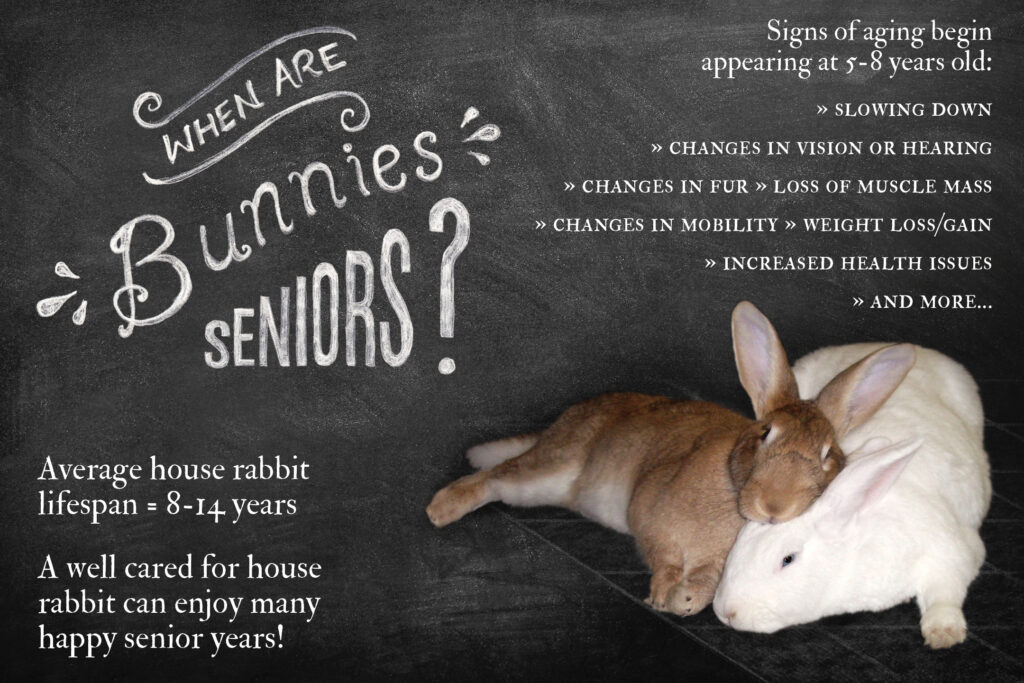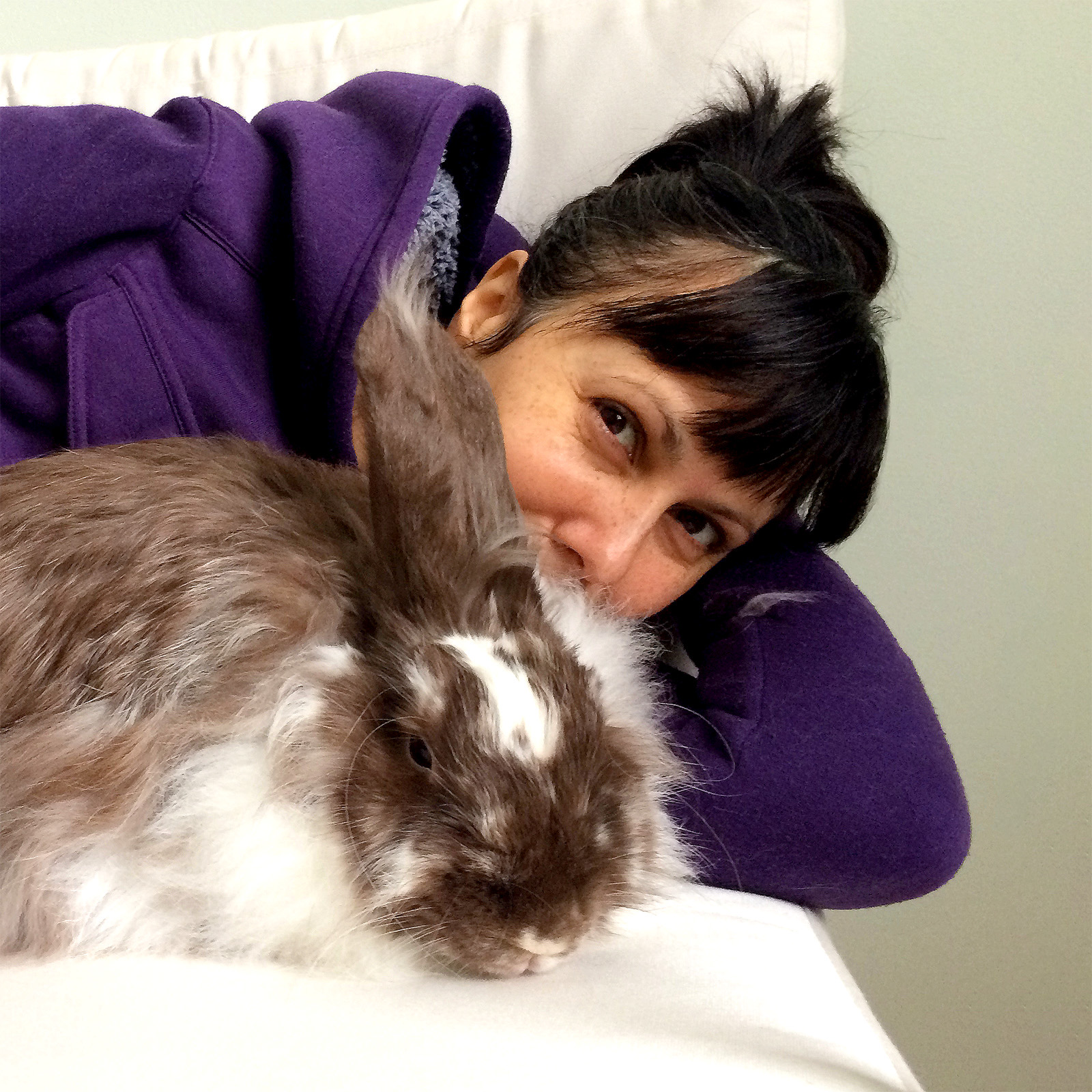Life expectancy for a house rabbit is between 8-14 years. But when do rabbits become seniors? There is not an exact age when it happens. However, sometime between the ages of 5-8 a rabbit becomes a senior. When the signs of aging start to manifest is partly based on the size of the rabbit, genetics, the quality of care he’s received throughout his life, and even if he has a loving bond mate.
What are the signs of aging?
- Slowing down, decrease in activity level, sleeping more
- Changes in fur coat (coarser, sparser, more gray hair)
- Changes in nails (thicker, turn outwards)
- Changes in mobility
- Changes in eyesight and/or hearing
- Calluses on hocks
- Increased sensitivity to hot and cold temperatures
- Weight loss or weight gain
- Muscle wasting/loss of muscle tone
- Difficulty maintaining hygiene
- Increased health issues (dental, bladder, or kidney are common ones)
Preventative care to keep your aging rabbit healthy
- Proper diet is #1
- Spaying female rabbits virtually eliminates uterine infections and reproductive cancers
- Regular physical exercise and activity
- Mental enrichment with toys, games, and interaction with you
- Companionship of a bonded rabbit friend
- Regular veterinary check ups and blood work
Aging is a natural process. A well cared-for house rabbit can age gracefully and enjoy many golden years. Your rabbit may need some level of nursing care at some point in her life. Expect this and know for a fact that she will be forever grateful for your loyalty and love. Caring for our elderly companion animals is part of the commitment we make to them that honors the years of love and friendship we have shared.
Resources:
- The Importance of Hay
- Food & Diet
- Best Vegetables For Rabbits: A Healthy Diet Guide
- DisabledRabbits.com: Senior Rabbits
- RSPCA (UK): Caring For Senior Rabbits

